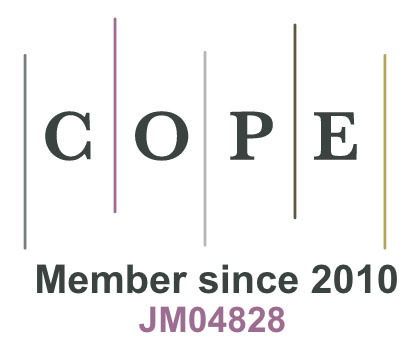Understanding Survivor Guilt

Our current featured article addresses the meaning of survivor guilt, and by understanding this experience, seek effective ways to alleviate the suffering that comes to those who experience it. The article is titled “Survivor Guilt: Analyzing the Concept and its Contexts” The authors, Sadie Pauline Hutson, PhD, RN, WHNP, BC, Joanne M Hall, PhD, RN, FAAN, and Frankie Lane Pack, BA have provided the following commentary about their work, including a digital story video for ANS readers!
Survivor guilt, as presented in our analysis, is not monolithic. It manifests in many diverse temporal and situational contexts. It may be anticipatory or emerge years after the loss was experienced. The manifestation of survivor guilt is complex, in part, because the response is highly individualized. The following digital story demonstrates anticipatory and
“loss-in-process” forms of survivor guilt. After the video, Sadie Hutson offers a reflection on the nature of her survivor guilt, and how it is, presently, to remember the events surrounding the death of her mother, Joy.
“On its surface, this digital story may not seem like a characterization of survivor guilt; yet it underscores the expansion of this concept to include varied contexts. As a child, I remember feeling isolated and alone. I polished my mom’s toes as she lay dying as if to say, “this is no longer a luxury my mom will be able to enjoy.” I anticipated
events that she would miss and sometimes even imagined what I might feel when that time came. As I approach and experience various life milestones, feelings of guilt reinforce that my mother was cheated. I was cheated. Yet, I survived to tell the story.
This concept analysis relates to our scholarship in varied ways. First, the authors of this paper are also study team members on a National Institute of Nursing Research funded R21 (5R21NR014055-02) aimed at exploring end-of-life care and service needs of persons living with HIV/AIDS in Appalachian Tennessee and Alabama. In conducting this mixed-methods study, we noted the importance of survivor guilt when individuals discussed the guilt they felt for
surviving decades longer than many of their close friends, relatives, and significant others who lost their lives at the height of the AIDS epidemic. In Hutson’s work as the director of a hereditary cancer risk assessment program in Pikeville, KY, survivor guilt continues to be pervasive (as it was when the concept first became a focus for Hutson in 2001) among individuals who test negative for the known hereditary cancer gene present in their family. Rather than feeling relief for being spared, these individuals experience guilt for being the “lucky one,” citing that the result often drives a wedge in the relationships between mutation-positive and mutation-negative family members. Survivor guilt is also relevant to Dr. Hall’s work with female survivors of childhood maltreatment (R01NR07789). In these data, often the thriving survivor of a chaotic and abusive situation expressed feelings of guilt for leaving behind siblings who did not become successful in life and were still “stuck” in the trauma, sometimes still living with the perpetrators or abusive partners.
Nurses encounter the trauma of survivor guilt in many situations, yet they may not always see it, if the lens through which it is viewed is too narrow. Nurses must first see survivor guilt. After we have seen it in a particular context,
situation-specific theory can be developed to better characterize the survivor guilt and guide interventions to mitigate the fallout in that context. Perhaps, digital storytelling is one such strategy. It is salient that the same strategies will not work for all. Survivor guilt can be highly damaging, or wilted to being merely a form of nostalgia. We need to understand the process by which individuals resolve their own survivor guilt, as well as therapeutic strategies that fend off traumatic guilt that can be paralyzing, isolating, and disempowering. This will mobilize sufferers to move forward into the fulfilling lives they deserve.
While their article is featured, you can download it at no cost. So visit the ANS web site now to get your copy, read the article, and return here to share your thoughts and ideas about this very thought-provoking article!







This is a powerful concept analysis that broadens nursing theory application to practice. As a nurse practitioner I have encountered survivor guild numerous times. I first recognized this in relation to my work with holocaust survivors past and present, as well as survivors of unintentional and intentional violence. Rather than treating or dismissing the symptoms, the greater understanding provided here may help further assessment and interventions support. I would encourage further explication for tool development.
Excellent contribution to the literature on this important topic Dr Hutson and Dr Hall! It would be interesting to looks at survivor’s guilt across the lifespan….Do children process and manifest it differently compared to adults? What about teens and elder’s experiences with survivors guilt?
Thank you Dr. Niederhauser! I agree that studying the experience of survivor guilt based on developmental stage would be a worthwhile endeavor. It seems that although individuals at many ages can experience survivor guilt, the manifestation is likely to vary across differing ages.
Thank you so much for your post! I believe that your experiences are validation of your ability to see survivor guilt in multiple contexts. Recognition is key in the absence of known treatment strategies. I believe that allowing individuals to tell their stories allows for reflection and introspection– nurses can open these conversations in a safe and encouraging environment. Thanks for all the work you do with these unique survivors.